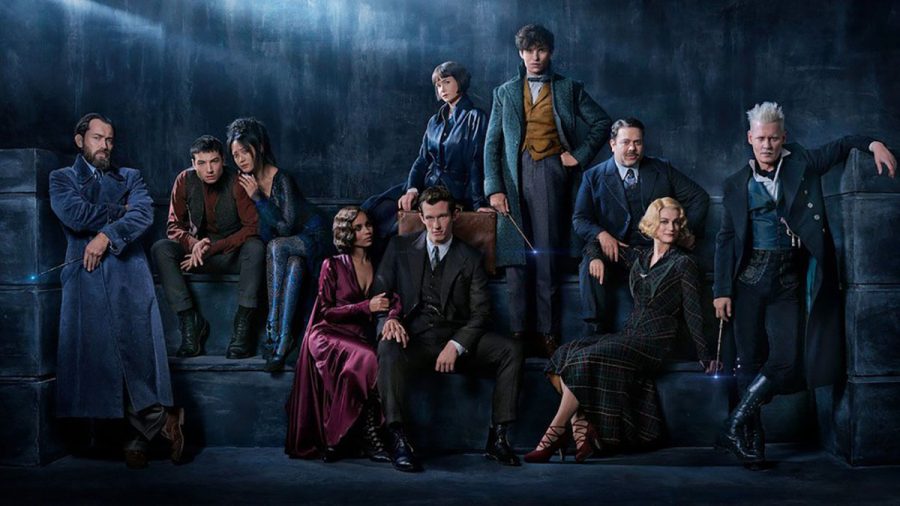The Harry Potter controversy continues
How the omission of the sexual orientation of beloved “Harry Potter” character, Albus Dumbledore, sparked controversy in the LGBTQIA+ community
More stories from Rebecca Mennecke
From Harry Potter’s beginnings in “Harry Potter and the Sorcerer’s Stone” in 1997, the world’s favorite lightning-scarred teenager has faced an onslaught of controversy, appearing on banned book lists globally for over twenty years.
The controversy continues with the newest addition to the Harry Potter universe — “Fantastic Beasts and Where to Find Them” — which follows American wizard Newt Scamander as he analyzes and describes magical creatures. The latest dispute revolves around the explicit portrayal of the sexual orientation of the character Albus Dumbledore being omitted in the film.
It was over ten years ago that author J.K. Rowling confirmed she had “always thought Dumbledore was gay.”
In an interview with Entertainment Weekly, Director David Yates asserted that Dumbledore will “not explicitly” be portrayed as gay in the second Fantastic Beasts movie.
Rowling recently responded to criticism about the interview by tweeting, “Being sent abuse about an interview that didn’t involve me, about a screenplay I wrote but which none of the angry people have read, which is part of a five-movie series that’s only one installment in, is obviously tons of fun.”
Rowling may be insinuating that while Dumbledore’s sexual orientation will be left out of the second Fantastic Beasts, it may be exposed in later movies.
“Well, I can’t tell you everything I would like to say because this is obviously a five-part story, so there’s lots to unpack in that relationship,” she said.
Some in defense of Rowling minimizing — or leaving out — Dumbledore’s sexuality added how in many countries, sexual orientations other than heterosexual are less tolerated than in the United States and so some governments would either not allow the film in their theaters or would censor them.
Others observed that it has never been said that Dumbledore is gay in the books, and so Fantastic Beasts is remaining true to textual evidence in the Harry Potter series, rather than on facts added after the series was published.
Caspar Salmon from The Guardian criticized Rowling adding Dumbledore’s sexuality as an afterthought by stating, “Quite how somebody is supposed to be gay without it ever being said, written or observed is for greater minds than mine to fathom.”
Many fans have accused Rowling of queerbaiting — insinuating a same-sex relationship where there ends up being none — in this case, frustrating Harry Potter fans who have awaited the explanation of Dumbledore and his relationship to Grindelwald.
Dumbledore’s sexual orientation being minimized is yet another blatant example of the LGBTQIA+ community’s lack of representation in the film industry and the omission of a detail that greatly contributes to Dumbledore’s story.
I respect the decision to keep Dumbledore’s sexual orientation a more subtle part of his personality for the first film, because Dumbledore has always been a mysterious, private character, and I can understand how the director may want to portray that.
However, I do think Dumbledore’s sexual orientation must be portrayed in later films because otherwise the complex relationship that Rowling established between Dumbledore and Grindelwald makes little sense.
The only way to formulate a solid opinion on the controversy is to see the the film when it comes to theaters Nov. 16, 2018.

